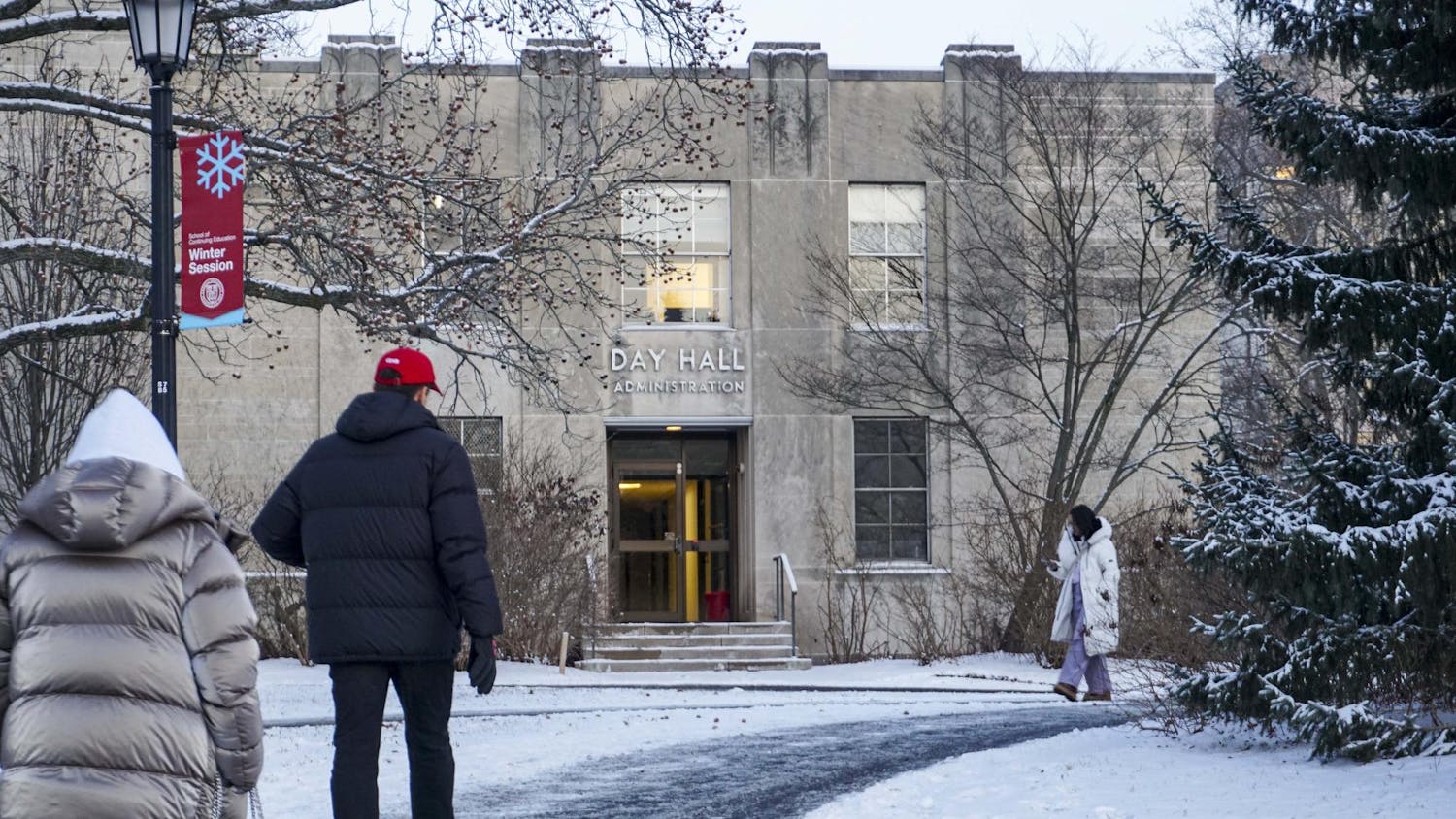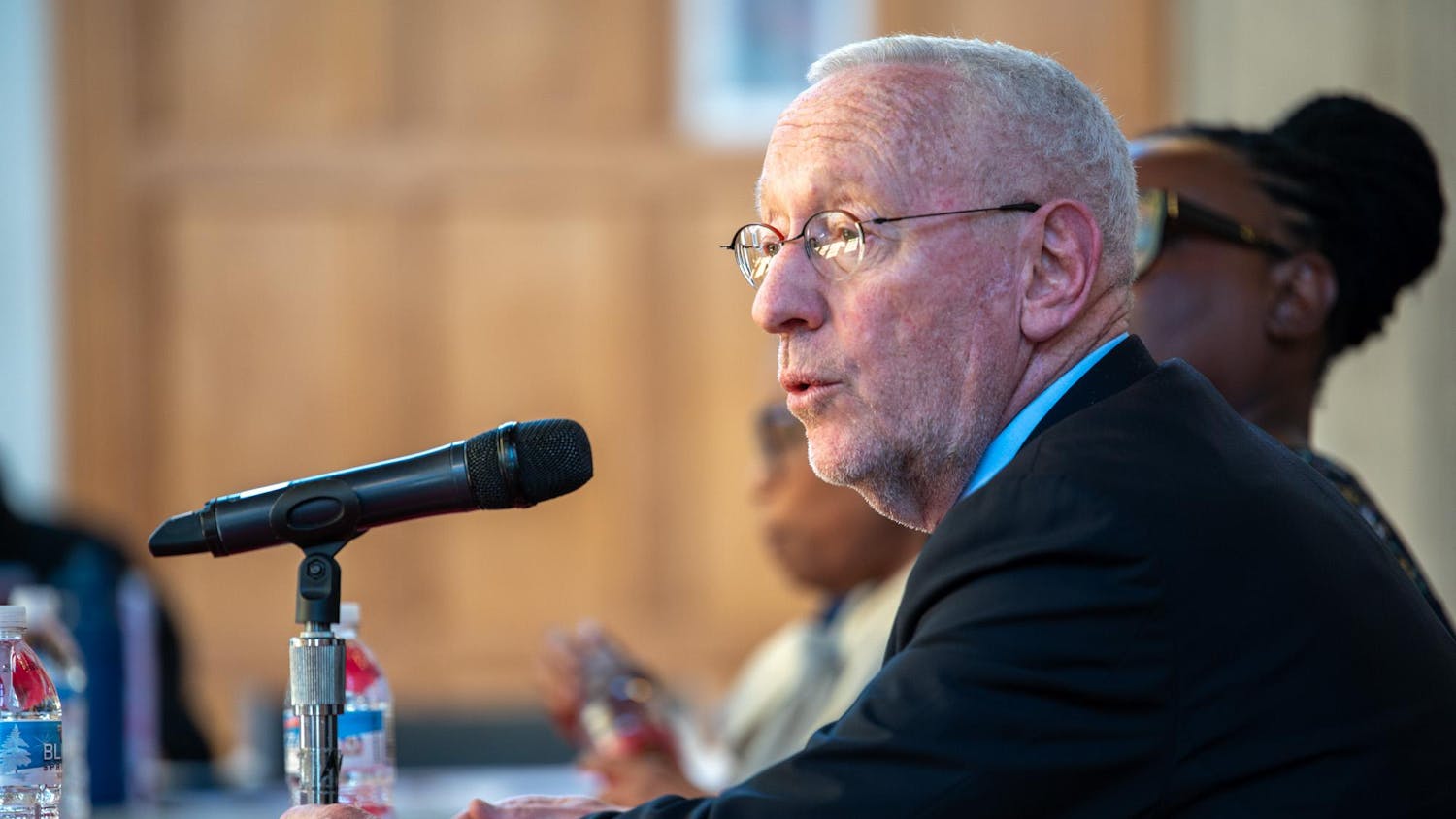The Presidential Task Force formed by President Martha E. Pollack in the wake of racially-charged campus incidents last fall submitted a report with their final recommendations on June 8, with the proposed changes ranging from compulsory diversity education to a revised campus code of conduct.
The members of the task force have been working since January on drafting recommendations to bring to the president. Pollack originally called for this task force in September 2017 to address “bigotry and intolerance” within the Cornell Community according to the email sent out to the university.
The task force consisted of 36 students, faculty and staff. Vice Provost Lisa Nishii, Eduardo Peñalver ’94, dean of the law school, and Associate Dean David Wooten, served as the co-chairs of the task force leading the campus experience, regulation of speech and harassment and campus response subcommittees respectively.
Peñalver said he enjoyed his experience serving on task force in an email to The Sun.
“Although the Task Force as a whole included people with very different points of view, everyone approached the work with diligence and a sincere desire to strengthen the Cornell community,” he said. “I believe these recommendations, if implemented, will result in a Campus Code process that more closely aligns with the University’s values and educational mission.”
The final report recommends the creation of University core values, streamlined compulsory diversity education throughout the entire Cornell community, and a revised, student centered, campus code of conduct that is in harmony with other departments.
Each subcommittee wrote their own separate report. The campus experience had the longest report, totaling 94 pages in length. They identified eight key areas of change including strengthening community identification, enhancing social belonging and engagement across differences and diversity education.
Throughout their report, the campus experience committee acknowledged that the decentralization of the University had lead to confusion about resources available and a weakened sense of community. Many of the recommendations center around creating a university-wide commitment to embracing and protecting diversity through a top-down approach.
The committee used a ranking system of asterisks to quantify the recommended timeline for implementation. According to the campus experience report recommendations marked with one (*) asterisk should be implemented immediately, two asterisks (**) represent intermediate goals, and three asterisks (***) are aspirational goals.
Recommendations with one asterisk included creating a physical space for multicultural Greek chapters to reduce inequity, creating a mechanism for students to report about their Greek life recruiting experience and increased transparency of the cost of joining a greek organization.
The regulation of speech and harassment subcommittee created recommendations under the themes of coverage/jurisdiction, purpose, complexity, and structural questions. The committee was charged with looking at the campus code of conduct to find and address its shortcomings.
According to their report, they believed the code should be more more educational rather than punitive. This manifested in recommendations to address the University’s core values clearly, similar to recommendations by the campus experience committee, and to write the code in more easily understandable language, since it currently aligns with language of New York State law.
Additionally, the subcommittee recognized that although the code states it applies to both students and faculty, it mainly deals addresses offenses relating to students, prompting the recommendation that it narrow its focus to address student conduct only.
The report also recommends that the conduct of all student organizations be handled by the same process. Currently the Office of the Vice President for Student and Campus Life addresses Greek organizations while the Campus Code of Conduct pertains to non-Greek organizations. The disparity, according to the report, perpetuates an idea that Greek organization are being privileged.
The third subcommittee focused on campus response and dealt with how the University responds to bias related incidents, their speed in the response, and how the community is affected by the messages shared by the University.
They looked at data from the Campus Response Survey in creating their recommendations. The subcommittee was also divided further and operated under the four themes of instructional support, community health, co-curricular support, and bias communication and reporting.
One of the recommendations by the campus response committee was training for all TAs since they are an integral part of the learning structure for many students.
President Pollack previously told The Sun that by fall “[she expects] some of the things will already have been implemented” after reviewing the final reports this summer. In addition, Cornell’s diversity web page will be continually tracking progress on any initiatives.

Presidential Task Force on Campus Climate Submits Final Report to Pollack
Reading time: about 4 minutes
Read More










